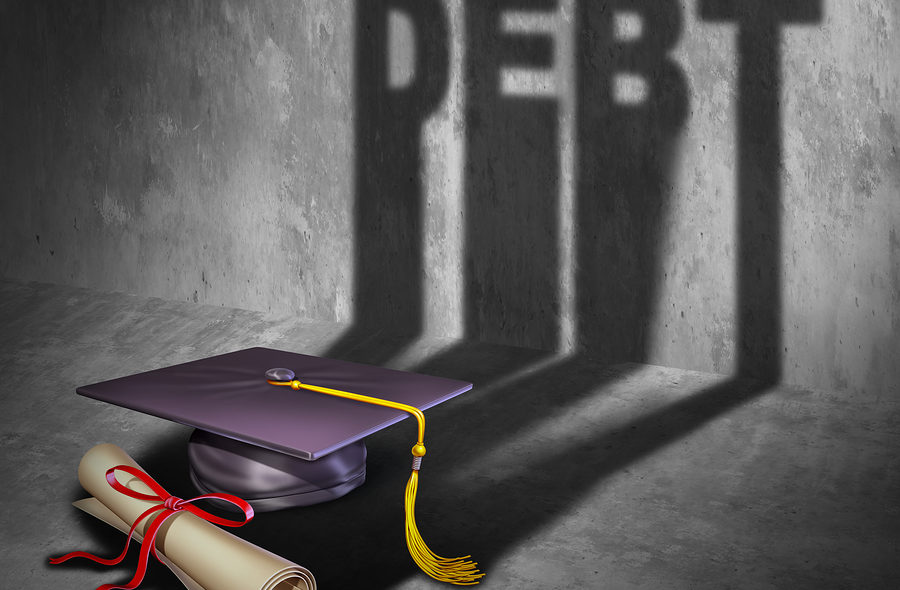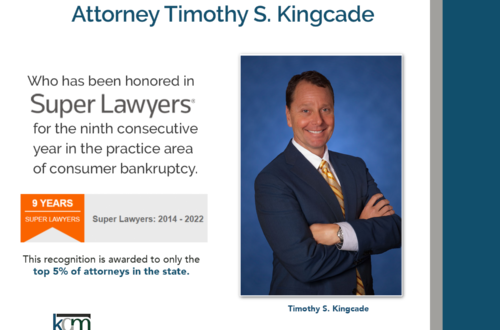Student loan debt has been known to haunt borrowers for years, if not decades, after that first loan is issued. Many borrowers find themselves on payment plans that can least up to 25 years. To them, a student loan is like a mortgage without the benefit of having the house to live in. Once the debt is paid in full, the last thing that person wants to think about again is that loan. However, for many borrowers, that debt never seems to go away and often comes back in the form of zombie debt.
Most forms of debt are limited by a statute of limitations, which governs how long a creditor can sue the borrower for the debt. Federal student loans were once governed by a six-year statute of limitations until 1991 when that statute of limitations was lifted. Now they are technically collectible indefinitely. Private student loans, however, are still limited by statute.
Occasionally, a borrower may pay off the debt only to be pursued years later by the creditor trying to still collect on the debt. The borrower may then find himself or herself in a tough situation if decades have passed, and he or she no longer has the physical proof to show that the debt was satisfied. It is for this reason that we always recommend you hang onto your loan paperwork.
Other times, borrowers may not pay on their debt in hopes that enough time will pass where the creditor gives up on trying to get him or her to pay. That strategy is not always the best one to take, especially since federal student loans can be collectible for any length of time. Ultimately, how to deal with zombie student loan debt depends on the type of student loan involved.
It is never advisable to ignore federal student loans. If the borrower discontinues payments, the federal government can garnish his or her wages and can even take the person’s tax returns or Social Security payments. If the borrower is unable to make payments, most federal student loan programs offer deferment or forbearance to help the borrower who is going through a difficult financial situation. Income-driven repayment plans are also offered for qualifying borrowers. Seek help through one of these options instead of stopping payments on the loans completely in hopes that they will go away.
If a borrower is contacted regarding a student loan debt, whether it be federal or private, that has either been paid off or is no longer collectible, the first step the borrower needs to take is to ask for proof of the debt. Send the debt collector or creditor a certified letter requesting information regarding the debt, including the name of the original creditor, the borrower’s name on the loan, the account number, the payment history, and the original amount owed. This information must be provided within 30 days by the creditor or debt collector. This proof gives the borrower a chance to review what the collector or creditor says is owed in order to verify that it is, in fact, correct.
If the amount is not correct, be prepared to submit proof showing the actual amount owed or proof that the loan is either paid off or is no longer collectible, in the event it involves a private loan that is past the statute of limitations.
In the event the creditor is within their rights to collect on the debt, the borrower may consider settling the debt. After all, the creditor would likely rather receive something in lieu of receiving nothing at all. Work directly with them to see what they would be willing to take in order to satisfy the debt. Once the amount is completely satisfied per the settlement agreement, request written acknowledgement that the debt is no longer owed from the creditor in the event they try to come back and “resurrect” the debt again.
For borrowers who are struggling with student loan debt, relief options are available. Many student loan borrowers are unaware that they have rights and repayment options available to them, such as postponement of loan payments, reduction of payments or even a complete discharge of the debt. There are ways to file for bankruptcy with student loan debt. It is important you contact an experienced Miami bankruptcy attorney who can advise you of all your options. As an experienced CPA as well as a proven bankruptcy lawyer, Timothy Kingcade knows how to help clients take full advantage of the bankruptcy laws to protect their assets and get successful results. Since 1996 Kingcade Garcia McMaken has been helping people from all walks of life build a better tomorrow. Our attorneys help thousands of people every year take advantage of their rights under bankruptcy protection to restart, rebuild and recover. The day you hire our firm, we will contact your creditors to stop the harassment. You can also find useful consumer information on the Kingcade Garcia McMaken website at www.miamibankruptcy.com.
Source: Zombie Student Loan Debt: How to Handle Old Debt That Reappears – Forbes.com


